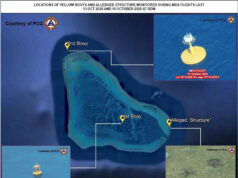Banana exporters press for bilateral tariff deal with South Korea
BANANA GROWERS and exporters warned that the Philippines could lose its big share of the South Korean market within the next two years without a bilateral deal that will give zero tariff to the commodity.
The Pilipino Banana Growers and Exporters Association (PBGEA), in a statement released Friday, said waiting for the conclusion of what it called “the highly ambitious” Regional Comprehensive Economic Partnership (RCEP) would affect the competitiveness of the Philippine cavendish banana.
“The route of RCEP will be far too long and circuitous. Multilateral discussions on this trade pact started in 2012 and is still going on. Who knows when it will be done?,” the statement quoted PBGEA Executive Director Stephen A. Antig as saying.
RCEP is a planned free trade agreement among the 10 member states of the Association of Southeast Asian Nations (ASEAN) and the six Asia-Pacific states with which ASEAN has existing free trade agreements (Australia, China, India, Japan, South Korea and New Zealand). Trade ministers met last Aug. 30-31 in Singapore with hopes of finalizing a deal by end-2018.
“Philippine banana exporters are already battling it out in South Korea with competitors (from South American countries) granted concessionary import tariff rates. We cannot afford to wait while this happens. This issue must be immediately taken up on a bilateral basis and specific to bananas,” Mr. Antig said.
He said “time is of the essence” for the banana tariff issue because “Peru banana exporters have been enjoying zero tariff as early as 2015. By 2020, barely 15 months from now, other suppliers like Colombia will enjoy zero tariff.”
South Korea has also already signed a free trade agreement with Chile, another major banana exporting country.
In November 2016, South Korea and six Central American nations — Nicaragua, El Salvador, Honduras, Costa Rica, Panama and Guatemala — signed a regional free trade agreement which would phase out tariffs in coffee, sugar, bananas, pineapples and mangoes immediately or within seven years.
For Philippine bananas, meanwhile, a 30% tariff is imposed. Under the Philippines’ trade agreement with South Korea, which is anchored on the ASEAN-Korea Free Trade Agreement or AKFTA, bananas are classified under Korea’s Highly Sensitive List.
Last year, 78.8% of South Korea’s cavendish imports still came from the Philippines, but PBGEA said the country could readily lose a significant market share to the South American suppliers with their preferential tariff terms.
“A bilateral agreement between Manila and Seoul is the only way for the country’s banana exports to have a fighting chance,” said Mr. Antig.
PBGEA, which groups the country’s major growers and exporters across Mindanao, said its representatives recently met with South Korean Ambassador to the Philippines Han Dong-man, who said that Seoul’s position is that RCEP remains the priority avenue for cutting tariffs on Philippine bananas.
Malacañang announced earlier this year that it will initiate negotiations for bilateral trade talks with Seoul, including the issue on banana import tariff.
PBGEA said the industry “will give its full cooperation with Philippine trade representatives to draft a mutually beneficial proposal that will be submitted to Seoul.”



